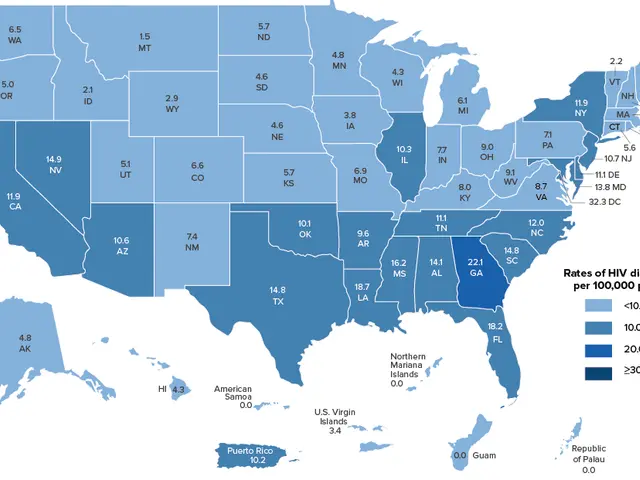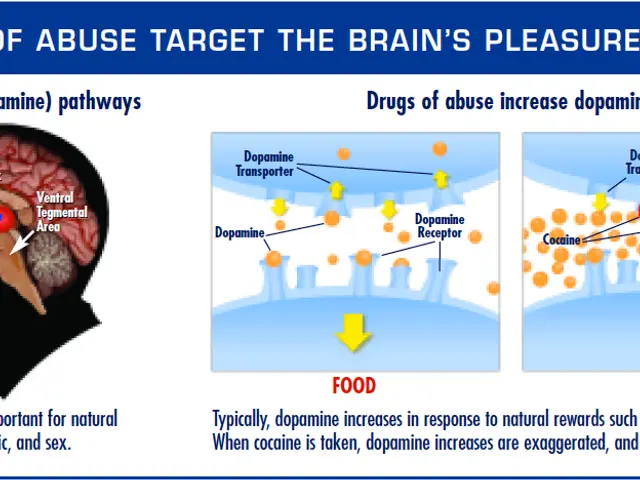Medication for obesity mimics stomach bypass surgery locally in the gut
## Syntis Bio's Weight Loss Drug SYNT-101 Shows Promising Results
In the world of weight loss solutions, a new contender is emerging, promising a non-surgical alternative to gastric bypass surgery. SYNT-101, developed by the US biotech company Syntis Bio, is making waves in the industry with its innovative approach and encouraging results from preclinical and early clinical trials.
The drug, which leverages the company's SYNT technology, creates a transient polydopamine coating in the duodenum, part of the small intestine. This coating selectively blocks nutrient absorption, mimicking the effects of a gastric bypass operation[1][2].
Recent developments have been positive for SYNT-101. Syntis Bio has secured $38 million in financing, enabling the company to advance the drug through Phase 1 trials and initiate human studies for SYNT-202, another oral therapy targeting a rare metabolic disorder[1][2].
Preclinical data has shown consistent 1% weekly weight loss in rodent models, with the preservation of lean muscle mass. Early human studies indicate that SYNT-101 modulates satiety hormones without adverse effects[1].
In a clinical pilot study, nine healthy volunteers aged 24 to 53 received different doses of SYNT-101. The study confirmed the formation of the Polydopamine layer in the intestine, as seen in endoscopic images. Blood tests showed increased leptin and decreased ghrelin levels, indicating increased satiety and reduced food intake[1].
Calorie intake decreased by ten percent and fasting blood sugar levels by eight percent in preclinical studies on SYNT-101. Moreover, a glucose tolerance test in the clinical pilot study showed a 35% delay in sugar absorption after 30 minutes and a 21% delay after 60 minutes compared to untreated participants[1].
Perhaps the most significant advantage of SYNT-101 is its non-invasive nature. Unlike gastric bypass surgery, SYNT-101 is taken orally once daily, offering a safer and more accessible weight loss solution. The drug's targeted mechanism, which redirects nutrient flow to deeper sections of the intestine, also holds promise for stimulating GLP-1 and other hormones that promote satiety and metabolic benefits[4].
If successful, SYNT-101 could potentially become a genuine alternative to surgical procedures and currently prevalent weight loss injections. Syntis Bio plans to submit an application to the US Food and Drug Administration (FDA) in the second half of 2025 to begin phase I clinical trials[1].
The potential advantages of SYNT-101 over current weight loss medications are numerous. Unlike some weight loss medications that may lead to loss of muscle mass, SYNT-101 maintains lean muscle in preclinical models[1]. The underlying technology can also be adapted for various therapeutic applications, including enzyme therapy and drug bioavailability enhancement[2].
As the world grapples with the growing problem of obesity, SYNT-101 represents a promising approach to obesity treatment. By mimicking the metabolic benefits of gastric bypass without the need for surgery, it offers potential advantages over existing weight loss medications in terms of safety, efficacy, and non-invasiveness.
The science behind Syntis Bio's weight loss drug SYNT-101, a non-surgical alternative to gastric bypass surgery, lies in its ability to selectively block nutrient absorption in the small intestine, replicating the effects of gastric bypass surgery through a transient polydopamine coating created by the company's SYNT technology. In health-and-wellness and nutrition discussions, SYNT-101 is gaining attention for its potential weight-management benefits, showing consistent 1% weekly weight loss in preclinical trials and modulating satiety hormones without adverse effects in early human studies.







